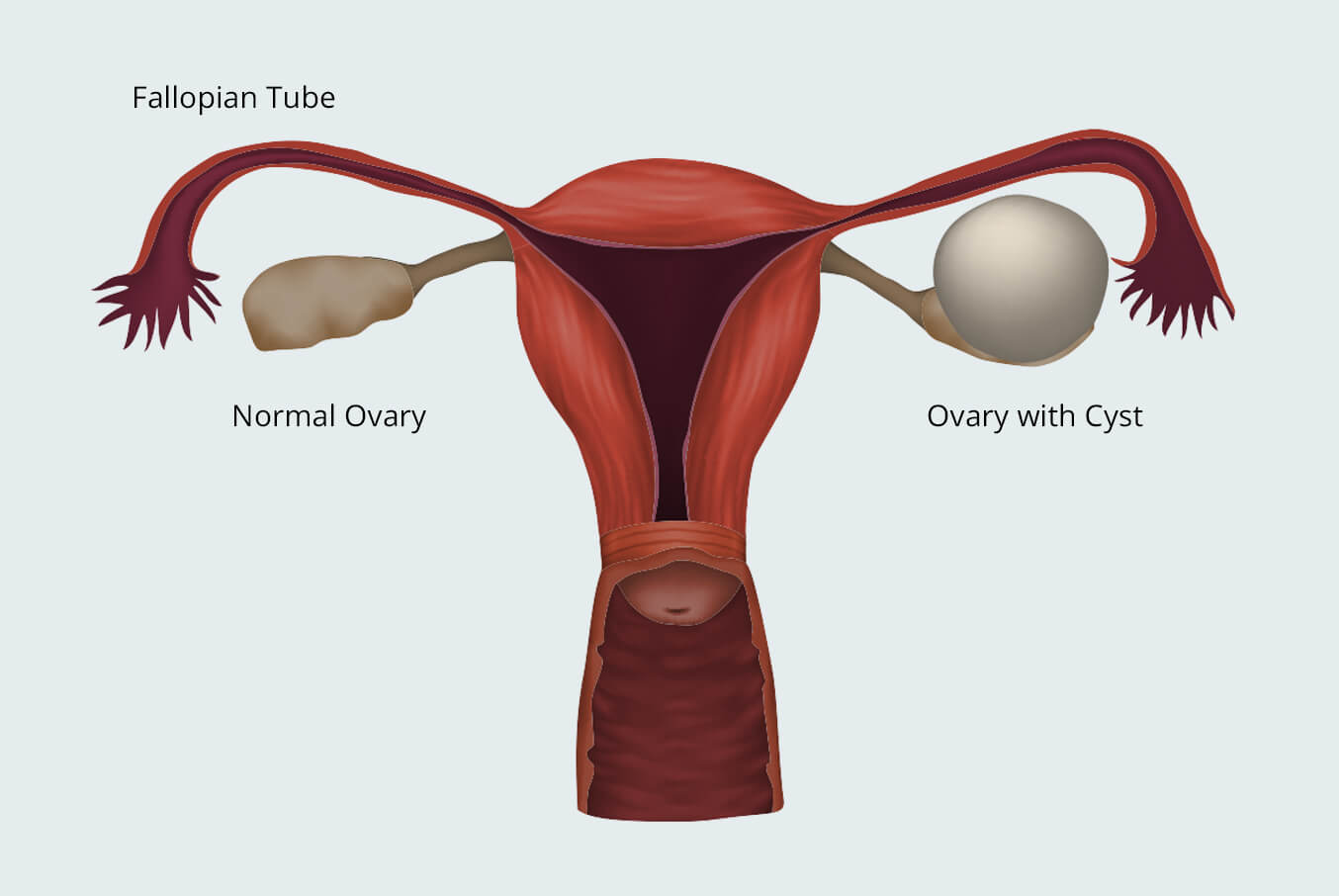Ovarian cysts are fluid-filled sacs arising from the ovaries which can vary in size. Physiological or functional cysts are formed when the eggs fail to ovulate. A woman may have ovarian cysts at some point in her life. Most of these cysts present little to no discomfort (asymptomatic) and some may resolve spontaneously.
Pathological cysts are cysts which are not related to the menstrual cycle. In some cases, these cysts may cause problems such as abdominal distension and pelvic pain. For example, when a cyst becomes too large or ruptures or twists (torsion), it can cause sudden severe pain in the lower abdomen.
Most ovarian cysts are benign but some may become cancerous over time. These cancerous cysts will have to be diagnosed and treated promptly.

Ovarian cysts can be caused by several factors, such as hormonal problems, pregnancy, endometriosis, or severe pelvic infections. Functional cysts, like follicle and corpus luteum cysts, can be caused by hormonal problems or medications that help in ovulation. Certain ovarian cysts may develop during pregnancy and support the pregnancy until the placenta forms. In some cases, cysts can develop due to infections that spread to the ovaries and fallopian tubes.
Treatment of ovarian cysts varies according to a woman’s age, the size of the cyst and the appearance of the cyst on ultrasound. If the cyst is not causing any pain, simple observation with serial ultrasound scans and blood tests for evaluation is sufficient. However, if a patient experiences severe pain because of the cyst, it needs to be surgically removed by your gynaecologist. The malignant (cancerous) potential of the cyst can then be determined after removal to see if further adjuvant therapy is necessary.
Depending on the size and type of your cyst, as well as your symptoms, age, and general health, your gynaecologist may recommend the following treatment options:
If the cyst is large, growing, or is causing pain, your doctor may recommend the removal of the ovarian cyst through surgery. These procedures include:
Women have a higher risk of developing ovarian cysts if they:
Do you have questions about women’s
health and pregnancy?
Let us help you.